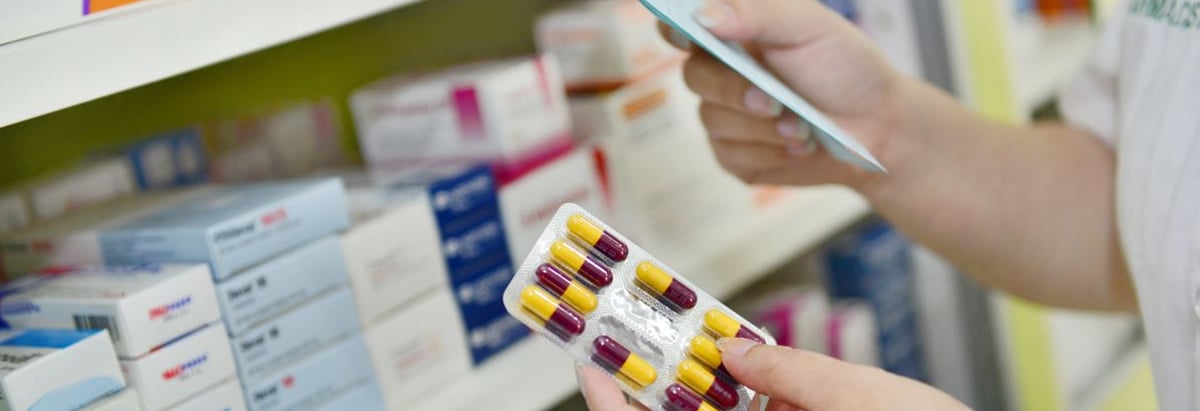Stock Analysis
- China
- /
- Food and Staples Retail
- /
- SHSE:603883
Is LBX Pharmacy Chain (SHSE:603883) Using Too Much Debt?

Warren Buffett famously said, 'Volatility is far from synonymous with risk.' So it might be obvious that you need to consider debt, when you think about how risky any given stock is, because too much debt can sink a company. Importantly, LBX Pharmacy Chain Joint Stock Company (SHSE:603883) does carry debt. But is this debt a concern to shareholders?
What Risk Does Debt Bring?
Debt and other liabilities become risky for a business when it cannot easily fulfill those obligations, either with free cash flow or by raising capital at an attractive price. Ultimately, if the company can't fulfill its legal obligations to repay debt, shareholders could walk away with nothing. However, a more frequent (but still costly) occurrence is where a company must issue shares at bargain-basement prices, permanently diluting shareholders, just to shore up its balance sheet. Of course, the upside of debt is that it often represents cheap capital, especially when it replaces dilution in a company with the ability to reinvest at high rates of return. The first thing to do when considering how much debt a business uses is to look at its cash and debt together.
See our latest analysis for LBX Pharmacy Chain
What Is LBX Pharmacy Chain's Net Debt?
You can click the graphic below for the historical numbers, but it shows that as of March 2024 LBX Pharmacy Chain had CN¥3.29b of debt, an increase on CN¥2.14b, over one year. However, it also had CN¥2.02b in cash, and so its net debt is CN¥1.27b.
How Strong Is LBX Pharmacy Chain's Balance Sheet?
The latest balance sheet data shows that LBX Pharmacy Chain had liabilities of CN¥10.3b due within a year, and liabilities of CN¥3.39b falling due after that. On the other hand, it had cash of CN¥2.02b and CN¥2.55b worth of receivables due within a year. So its liabilities total CN¥9.14b more than the combination of its cash and short-term receivables.
This deficit is considerable relative to its market capitalization of CN¥10.3b, so it does suggest shareholders should keep an eye on LBX Pharmacy Chain's use of debt. Should its lenders demand that it shore up the balance sheet, shareholders would likely face severe dilution.
We use two main ratios to inform us about debt levels relative to earnings. The first is net debt divided by earnings before interest, tax, depreciation, and amortization (EBITDA), while the second is how many times its earnings before interest and tax (EBIT) covers its interest expense (or its interest cover, for short). The advantage of this approach is that we take into account both the absolute quantum of debt (with net debt to EBITDA) and the actual interest expenses associated with that debt (with its interest cover ratio).
LBX Pharmacy Chain has a low net debt to EBITDA ratio of only 0.74. And its EBIT covers its interest expense a whopping 15.5 times over. So we're pretty relaxed about its super-conservative use of debt. The good news is that LBX Pharmacy Chain has increased its EBIT by 2.6% over twelve months, which should ease any concerns about debt repayment. The balance sheet is clearly the area to focus on when you are analysing debt. But it is future earnings, more than anything, that will determine LBX Pharmacy Chain's ability to maintain a healthy balance sheet going forward. So if you want to see what the professionals think, you might find this free report on analyst profit forecasts to be interesting.
Finally, a business needs free cash flow to pay off debt; accounting profits just don't cut it. So we clearly need to look at whether that EBIT is leading to corresponding free cash flow. Over the last three years, LBX Pharmacy Chain actually produced more free cash flow than EBIT. That sort of strong cash generation warms our hearts like a puppy in a bumblebee suit.
Our View
LBX Pharmacy Chain's interest cover was a real positive on this analysis, as was its conversion of EBIT to free cash flow. Having said that, its level of total liabilities somewhat sensitizes us to potential future risks to the balance sheet. When we consider all the elements mentioned above, it seems to us that LBX Pharmacy Chain is managing its debt quite well. But a word of caution: we think debt levels are high enough to justify ongoing monitoring. There's no doubt that we learn most about debt from the balance sheet. However, not all investment risk resides within the balance sheet - far from it. To that end, you should be aware of the 1 warning sign we've spotted with LBX Pharmacy Chain .
If you're interested in investing in businesses that can grow profits without the burden of debt, then check out this free list of growing businesses that have net cash on the balance sheet.
New: AI Stock Screener & Alerts
Our new AI Stock Screener scans the market every day to uncover opportunities.
• Dividend Powerhouses (3%+ Yield)
• Undervalued Small Caps with Insider Buying
• High growth Tech and AI Companies
Or build your own from over 50 metrics.
Have feedback on this article? Concerned about the content? Get in touch with us directly. Alternatively, email editorial-team (at) simplywallst.com.
This article by Simply Wall St is general in nature. We provide commentary based on historical data and analyst forecasts only using an unbiased methodology and our articles are not intended to be financial advice. It does not constitute a recommendation to buy or sell any stock, and does not take account of your objectives, or your financial situation. We aim to bring you long-term focused analysis driven by fundamental data. Note that our analysis may not factor in the latest price-sensitive company announcements or qualitative material. Simply Wall St has no position in any stocks mentioned.
About SHSE:603883
LBX Pharmacy Chain
Operates pharmacy store chain in China.


